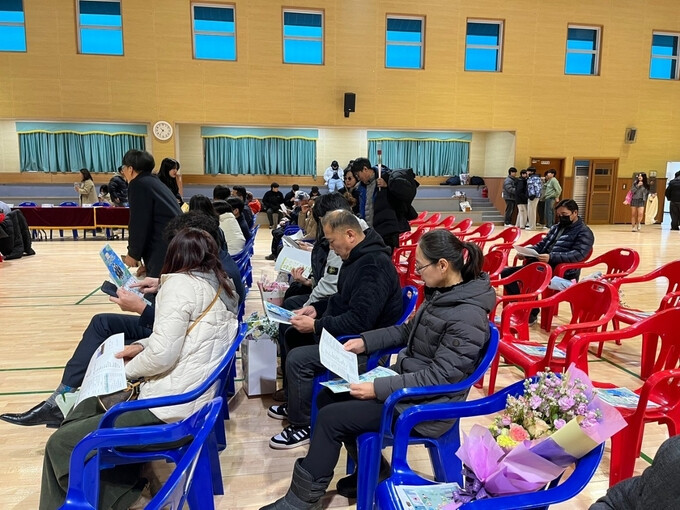
Chungcheongnam-do Province has witnessed a significant increase in interest and participation in its youth policies, along with a rise in actual policy demand, thanks to its proactive promotional strategies tailored to the perspectives of young people.
According to the province on April 23rd, the △'Youth Monthly Rent Temporary Support Project' saw a remarkable surge in applications, reaching 1,907 by February this year, a 126% increase compared to the 842 applications during the same period last year – more than doubling.
The △'Youth Culture and Arts Pass' also experienced a substantial rise in applications, with 3,173 applicants by March this year, a 26% increase from the 2,516 applicants in the same period last year. Furthermore, the △'National Mind Investment Support Project' recorded an average monthly increase of 12.32% in youth applicants this year (155) compared to the previous year's monthly average (138), indicating increased awareness of the policy.
Notably, the △'Youth Housing Lease Deposit Interest Support Project,' which began sending direct notification text messages to eligible recipients this year, experienced a rush of applications upon opening, leading to early closure within three days due to fierce competition.
Since December last year, the province has been actively engaging in targeted promotion aimed at new young adults by participating in high school graduation ceremonies and university entrance ceremonies across the province. Additionally, the 'Chungnam Youth Portal (https://youth.chungnam.go.kr)' serves as a comprehensive platform providing integrated information on youth policies from the central government, the province, and local cities and counties, also offering a policy search function.
A provincial official stated, "No matter how good a policy is, it is meaningless if young people are unaware of it. As a result of our efforts since the end of last year to promote and deliver information tailored to the perspectives of young people, we are seeing actual policy participation. We will continue to communicate in various ways to ensure that essential information is delivered to young people easily and quickly."
To further elaborate on Chungcheongnam-do's youth policy initiatives and their impact, additional research reveals the province has been actively expanding its range of support programs beyond those mentioned. These include vocational training subsidies, entrepreneurship support programs offering seed funding and mentorship, and mental health counseling services specifically designed for young adults facing the pressures of education, employment, and personal development.
The 'Chungnam Youth Portal' serves as a central hub, not only providing information but also streamlining the application process for various programs. It features user-friendly interfaces, FAQs, and direct contact information for relevant departments, making it easier for young people to access the support they need. The province has also utilized social media platforms popular among the youth, such as Instagram and Facebook, to disseminate information in a more engaging and accessible manner, often featuring testimonials from beneficiaries and highlighting success stories.
The proactive approach of Chungcheongnam-do aligns with a broader national trend in South Korea to address the challenges faced by its youth demographic, including rising living costs, job market competition, and mental health concerns. The central government has also been implementing various youth policies, such as job seeker allowances and housing support schemes. Chungcheongnam-do's efforts are commendable for their localized and targeted approach, ensuring that provincial-level support effectively reaches the intended beneficiaries.
The success of Chungcheongnam-do's promotional strategies offers valuable lessons for other regions seeking to improve youth engagement with public policy. By understanding the information consumption habits and communication preferences of young people, and by actively reaching out to them in relevant settings, local governments can significantly enhance the impact and effectiveness of their youth support initiatives. The province's commitment to continuous communication and information accessibility through various channels will likely contribute to sustained high levels of youth participation in its programs.
[Copyright (c) Global Economic Times. All Rights Reserved.]






























